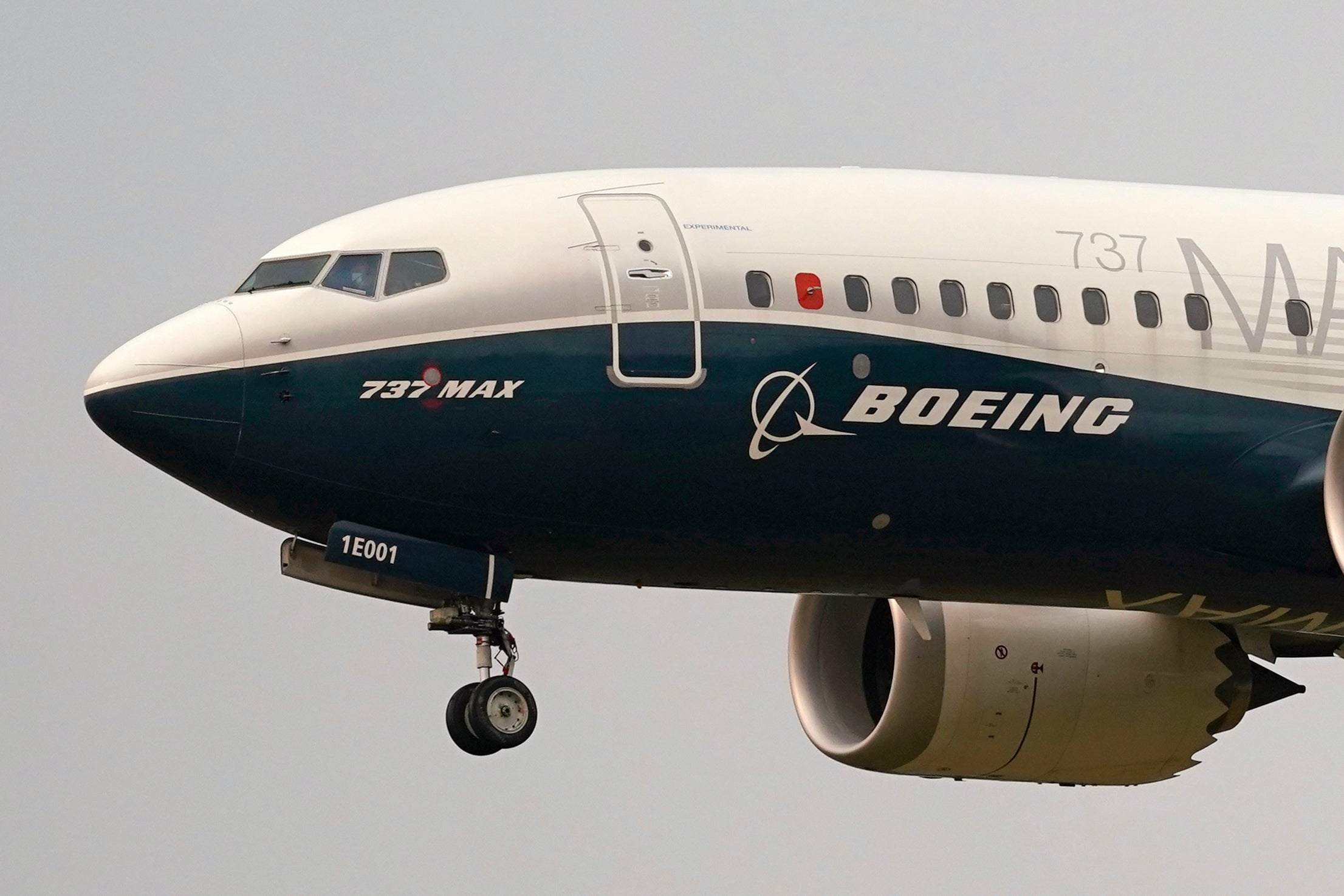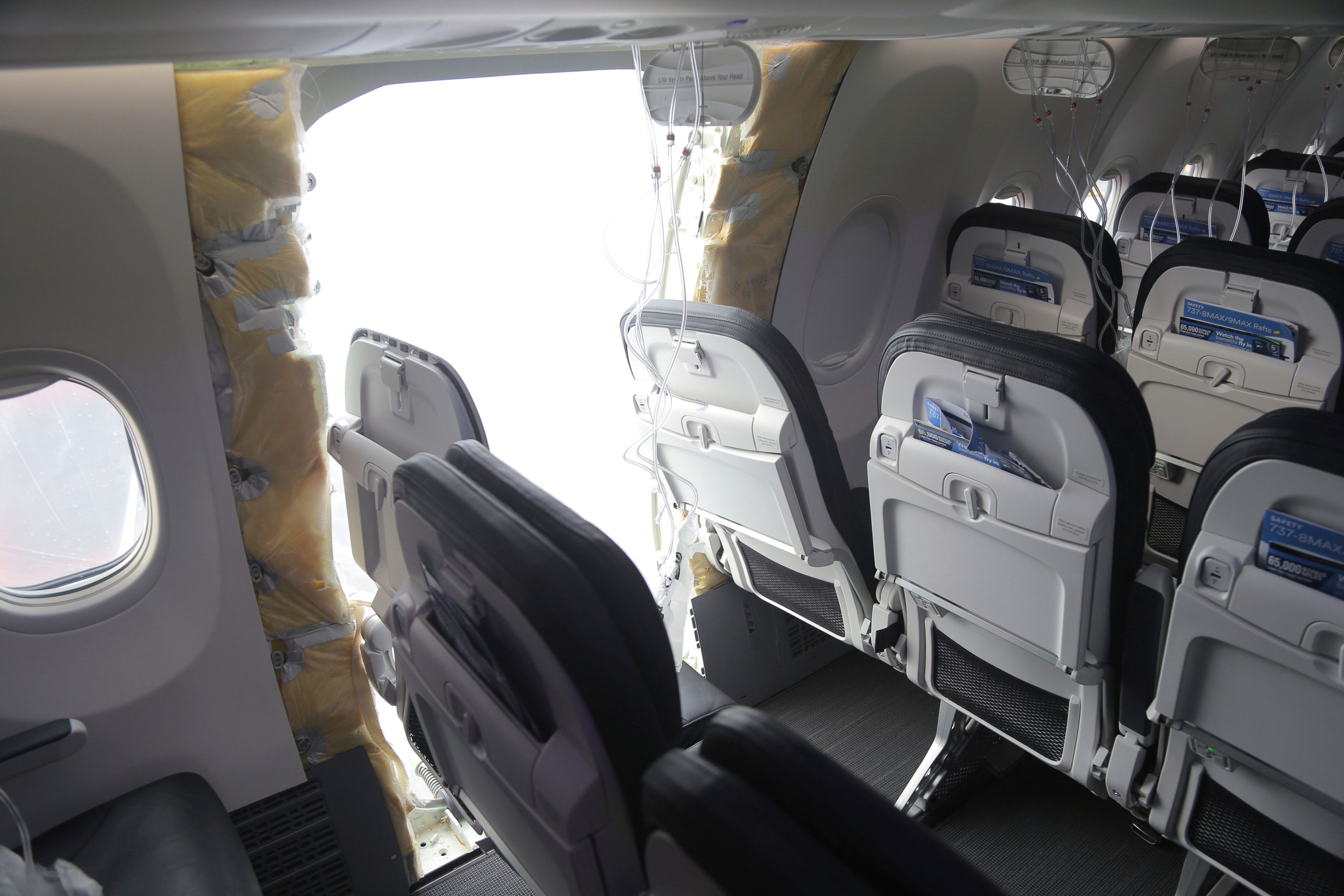Boeing warns of more delays after supplier finds another problem with 737 jets
Problem discovered with fuselages on its 737 jets that might slow down deliveries of about 50 aircraft

Your support helps us to tell the story
From reproductive rights to climate change to Big Tech, The Independent is on the ground when the story is developing. Whether it's investigating the financials of Elon Musk's pro-Trump PAC or producing our latest documentary, 'The A Word', which shines a light on the American women fighting for reproductive rights, we know how important it is to parse out the facts from the messaging.
At such a critical moment in US history, we need reporters on the ground. Your donation allows us to keep sending journalists to speak to both sides of the story.
The Independent is trusted by Americans across the entire political spectrum. And unlike many other quality news outlets, we choose not to lock Americans out of our reporting and analysis with paywalls. We believe quality journalism should be available to everyone, paid for by those who can afford it.
Your support makes all the difference.Boeing reported another problem with fuselages on its 737 jets that might delay deliveries of about 50 aircraft in the latest quality gaff to plague the manufacturer.
Boeing Commercial Airplanes CEO Stan Deal said in a letter to Boeing staff seen on 5 February that a worker at its supplier discovered misdrilled holes in fuselages. Spirit AeroSystems, based in Wichita, Kansas, makes a large part of the fuselages on Boeing Max jets.
“While this potential condition is not an immediate safety issue and all 737s can continue operating safely, we currently believe we will have to perform rework on about 50 undelivered planes,” Deal said in the letter to employees shared with the media.
The problem was discovered by an employee of the supplier of the fuselages who notified his manager that two holes might have not been drilled according to specifications, Deal said.
Both Boeing and Spirit AeroSystems are facing intense scrutiny over the quality of their work after an Alaska Airlines 737 Max 9 was forced to make an emergency landing on 5 January when a panel called a door plug blew out of the side of the plane shortly after takeoff from Portland, Oregon.

The NTSB is investigating the accident, while the Federal Aviation Administration investigates whether Boeing and its suppliers followed quality-control procedures.
Alaska Airlines and United Airlines, the only other US airline flying the Max 9, reported finding loose hardware in door plugs of other planes they inspected after the accident. The FAA grounded all Max 9s in the US the day after the blowout. Two weeks later, the agency approved the inspection and maintenance process to return the planes to flying.
Alaska Airlines and United Airlines have begun returning some to service.
Boeing, based in Renton, Washington, said last week it was withdrawing a request for a safety exemption needed to certify a new, smaller model of the 737 Max airliner. Boeing asked federal regulators late last year to allow delivery of its 737 Max 7 airliner to customers even though it does not meet a safety standard designed to prevent part of the engine housing from overheating and breaking off during flight.
Join our commenting forum
Join thought-provoking conversations, follow other Independent readers and see their replies
Comments